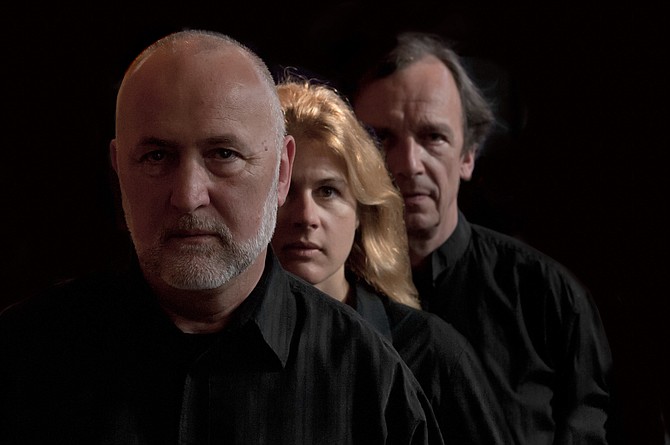John Holloway, Jane Gower and Lars-Ulrik Mortensen work to faithfully recreate classical works for the Mississippi Academy of Ancient Music’s concert series opener Thursday, Nov. 20.
You may not be a die-hard classical-music purist, but the Mississippi Academy of Ancient Music, known as MAAM, can make you feel like one. The organization's 2014-2015 concert series consists of seven performances and marks its 30th season of presenting early classical music the way that composers intended it to sound.
Richard McGinnis, a founding member and president of MAAM, says modern musicians tend to play these songs differently even when they use similar instruments. Luckily, a few musicians are dedicated to faithfully replicating the sounds of the 18th century and earlier. Beyond using authentic instruments, they've studied old instruction books on how to properly play those instruments.
"We play it the same way we would play (songs that were written) today," says McGinnis, a chemistry professor at Tougaloo College. "It turns out that's not remotely what was expected. So (compositions by) Bach and Handel sound very different when played on the kind of instruments they intended to be used as opposed to what we do today."
Some would-be concertgoers may be put off by the term "ancient," but McGinnis says the word refers to an 18th-century group called the Academy of Ancient Music. "Apparently, at that time 'ancient' meant 20 or 30 years old," McGinnis says. Mississippi Academy of Ancient Music took its name from this and the fact that its acronym, MAAM, plays on the term "ma'am," often used to show a woman respect. The often-difficult classical pieces that the group showcases and the skilled musicians who interpret them merit such respect.
McGinnis credits his former Tougaloo College colleague Ernst Borinski for bringing everyone together. It was at one of Borinski's birthday bashes that McGinnis and co-founders John Paul and Max Garriott first performed together. Borinski, who passed away in 1983, was a Jewish sociologist who fled Germany as a result of the Holocaust, eventually becoming a political activist in the South, taking part in Freedom Summer and other civil-rights campaigns.
Since its first concert in Vicksburg in 1984, MAAM has supported outstanding local talent and drawn internationally acclaimed artists to Mississippi. This season's opening performance features John Holloway on violin, Jane Gower on dulcian (Baroque bassoon) and Lars-Ulrik Mortensen on harpsichord, a piano-like instrument that plucks strings rather than striking them.
Holloway and Mortensen have produced music together since MAAM's formation. One of the duo's most significant works is "Corelli's Op. 5 Sonatas," the only recording to use Baroque composer Arcangelo Corelli's specified instrumentations. Holloway and Mortensen always wanted to perform trio sonatas for violin and bassoon from composers Dario Castello and Giovanni Battista Fontana. That wish came true when Jane Gower joined. Gower is one of a few bassoonists in the world capable of playing this spectacular music.
While Gower, Holloway and Mortensen all have vastly different musical backgrounds, every MAAM member has one goal when they perform: reviving some of history's greatest music.
"Some of these songs haven't been performed as they were composed in hundreds of years," McGinnis says. "We're either re-hearing, discovering anew or discovering that we've never really heard them before."
The Mississippi Academy of Ancient Music's season opener is 7:30 p.m. Thursday, Nov. 20, at St. Philip's Episcopal Church (5400 Old Canton Road, 601-956-5788). Admission is $20, student tickets are $5, and season tickets are $120. To reserve tickets and view a list of the season's dates and performers, visit ancientmusic.org.



Comments
Use the comment form below to begin a discussion about this content.
comments powered by Disqus